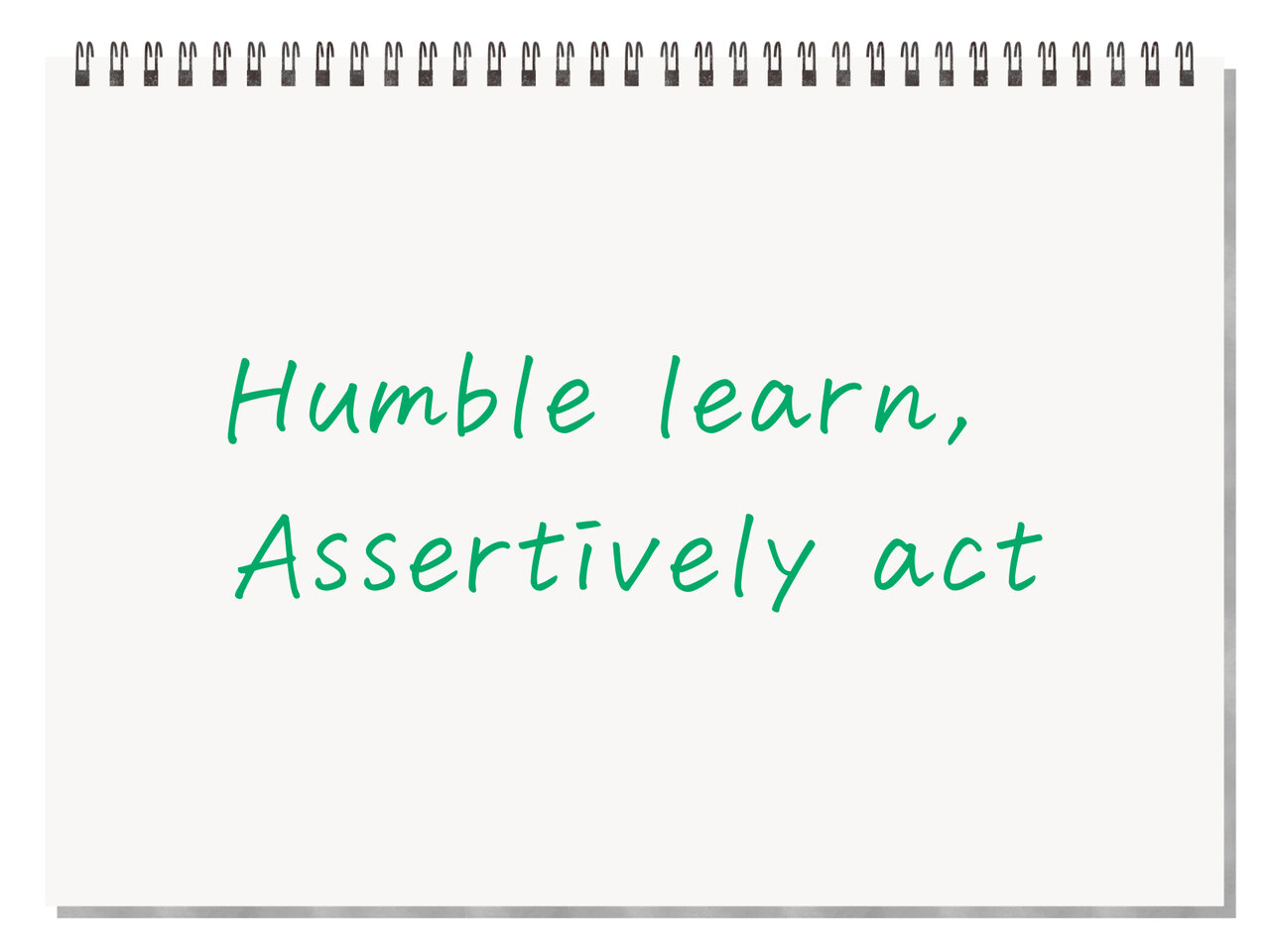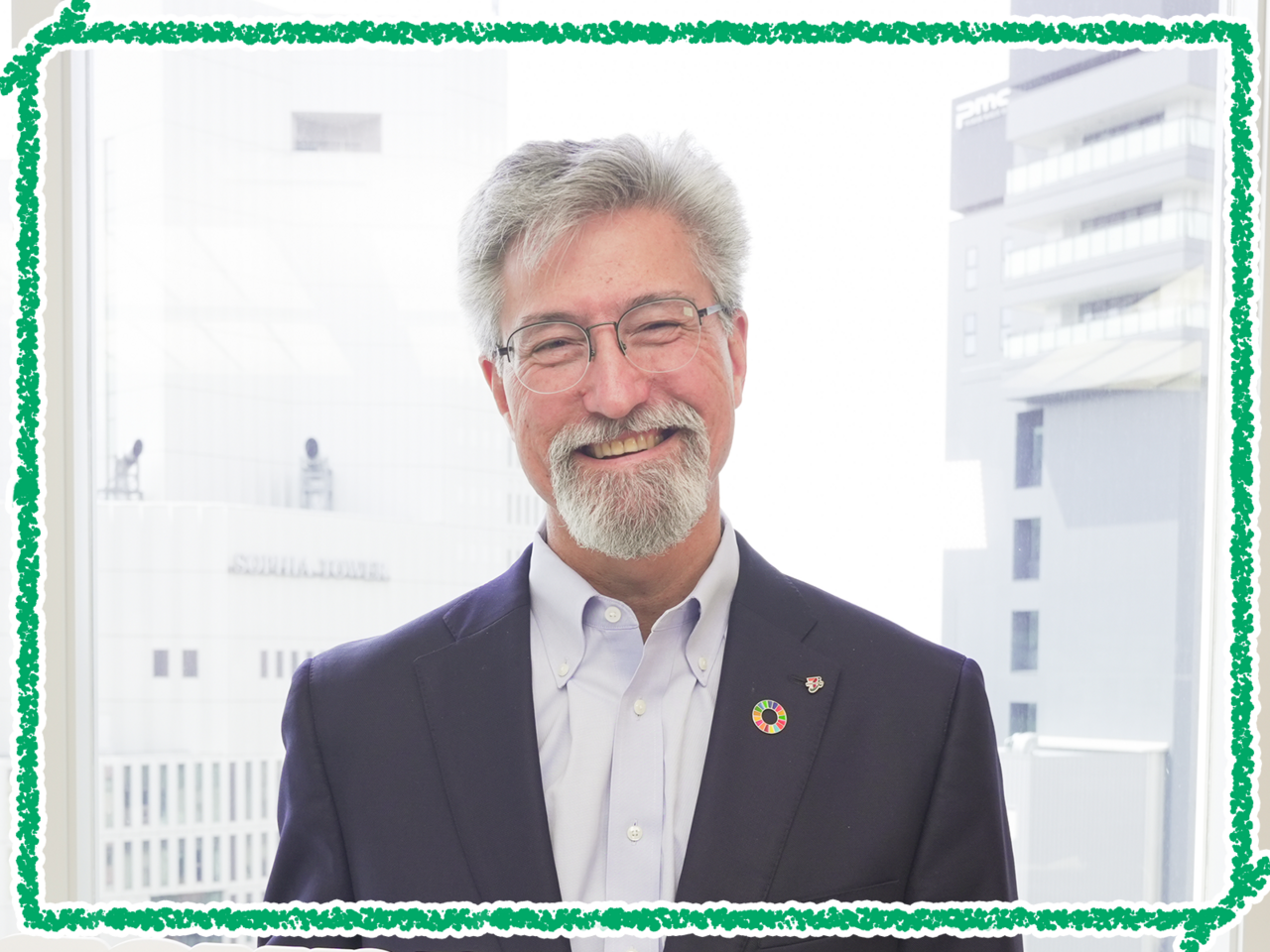
Never Settling: Learning with Humility and Creating Positive Change | Steve Dacus' Work Style
Every career has an "origin" story. This could stem from school friendships, part-time job experiences, or even a specific comment made by someone that left a lasting impact.
In our interview series, "Work Styles in Several Colors," we delve into the diverse working styles of the Seven & i Group members, tracing their origins and examining how they approach their work today.
In our fourth edition, we introduce Steve Dacus, the new CEO of Seven & i Holdings Group. Fluent in Japanese and English, Dacus displays his undeniable charm and sense of humor as he reflects on his multicultural childhood, the lessons from Aikido martial arts, his teenage days at his father's 7-Eleven store, and the influential individuals he met throughout his life.
Contents
- Childhood Lessons from Aikido
- 7-Eleven Debut as a Teen
- The Beginning of a Career Built Through Hard Work
- Meeting a Leader Who Influenced My Values
- Journeys with Uniqlo, Wal-Mart, and Sushiro
- Keep Striving to Grow
- Reviving the Founder's Mentality Through Servant Leadership
- Dacus' Working Style in Color: EMERALD GREEN
Childhood Lessons from Aikido
Born into a multicultural family with a Japanese mother and an American father, Dacus grew up moving back and forth between Japan and the United States until he reached sixth grade.
He fondly recalls childhood memories with his father and the valuable lessons he learned while training in Aikido in Japan. Although he studied various martial arts including Judo, Aikido and Taekwondo, Aikido remained his favorite, influenced by his American father, who had a deep love for Japan and all things Japanese.
"Every Saturday I would go with my father to the Hombu dojo (headquarters of aikido training gym) in Shinjuku to practice, and afterwards we would go to the public bathhouse. To this day I love onsen."
However, Dacus admits that he wasn't a good student at first. "I was bigger than the other kids around me and could win even if my techniques were poor, so I didn't take my training very seriously."
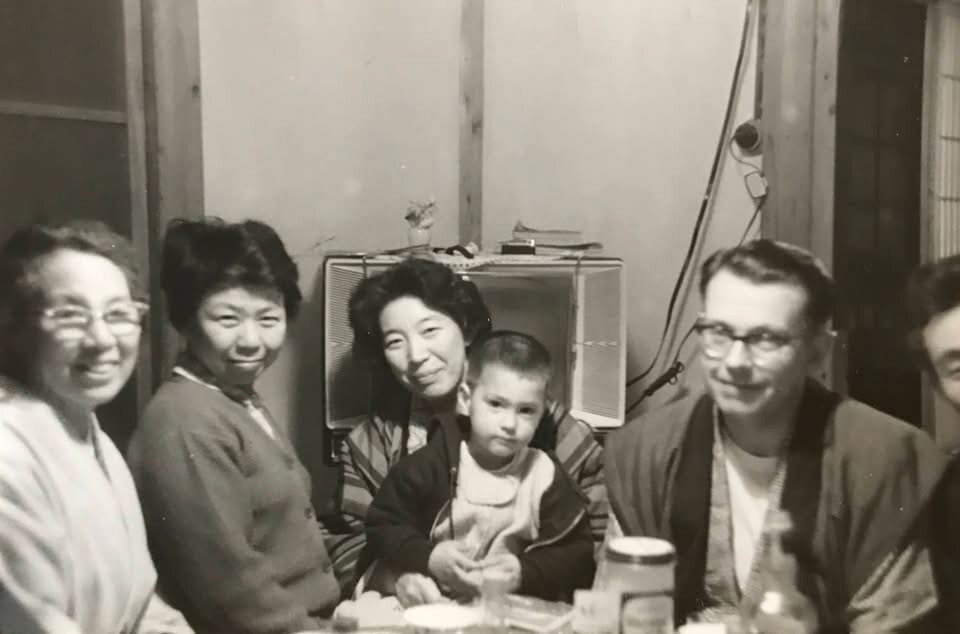
Dacus sits on his mother's lap (in the middle) with his father (on the right) during a family gathering in Tanuma, Tochigi, Japan, around 1961.
While his Aikido master consistently reminded him of the importance of mastering techniques over seeking short-term victories, the true lesson came through his own experience of defeat.
"One day, a boy who was bigger than me entered the class, and I was easily defeated. That is when I realized that if I was satisfied with my immediate victory and neglected to learn the techniques, I would not be able to win when a stronger opponent came along. No matter how good you think you are, there is always someone better, so you need to work hard and be prepared."
7-Eleven Debut as a Teen
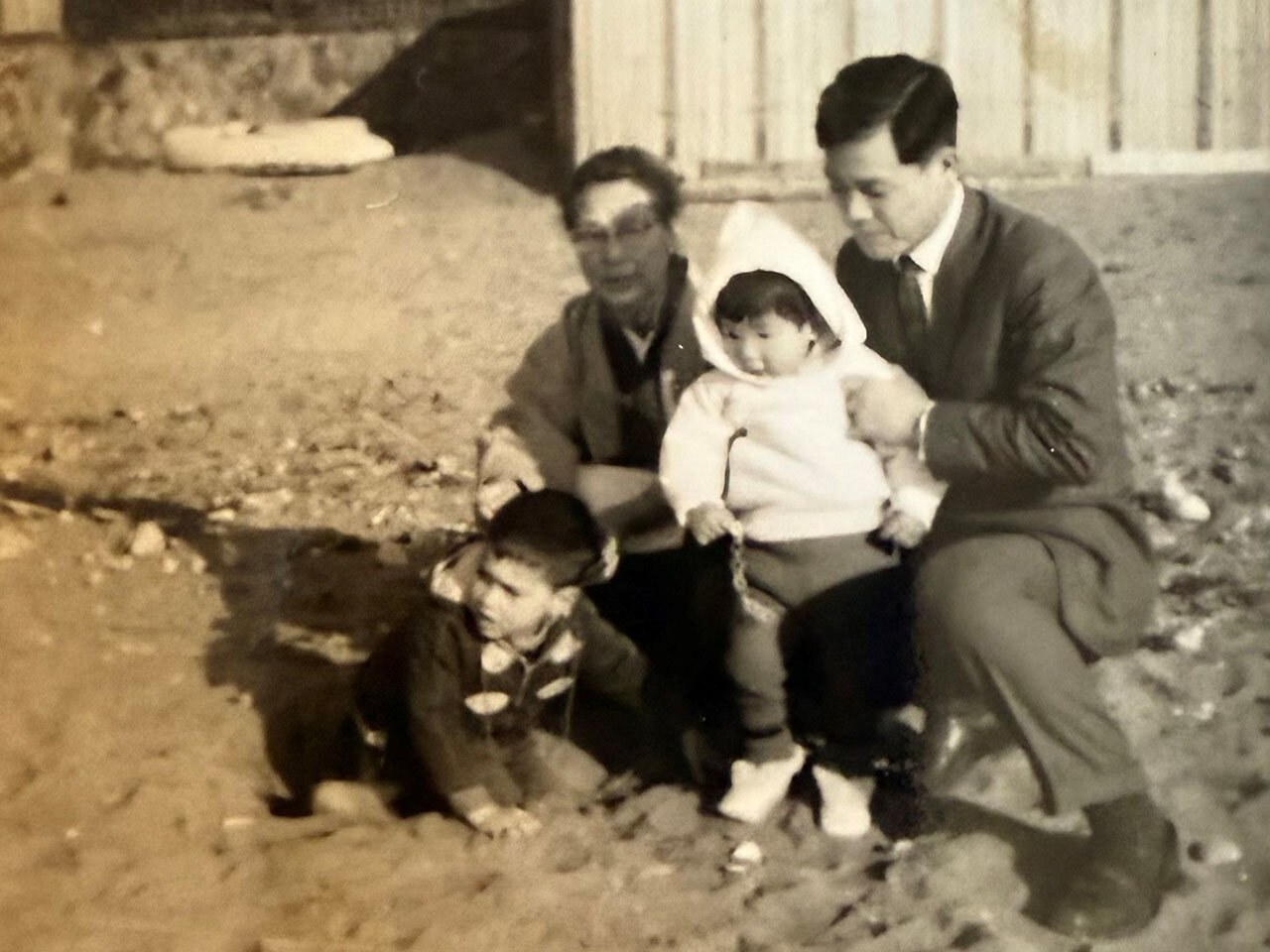
In a photo from 1962, Dacus (far left) is at the beach in Zushi, Kanagawa, Japan, with his grandmother, cousin, and uncle.
Spending time at the local supermarket chain Ito-Yokado is one of his fondest childhood memories. "It was big, had everything, and I was excited every time I went there," he recalls. "I was once scolded by a store employee for playing on the escalator, saying, 'It's dangerous!' The people at the store were warm and welcoming, and I have very fond memories of that time," he laughs.
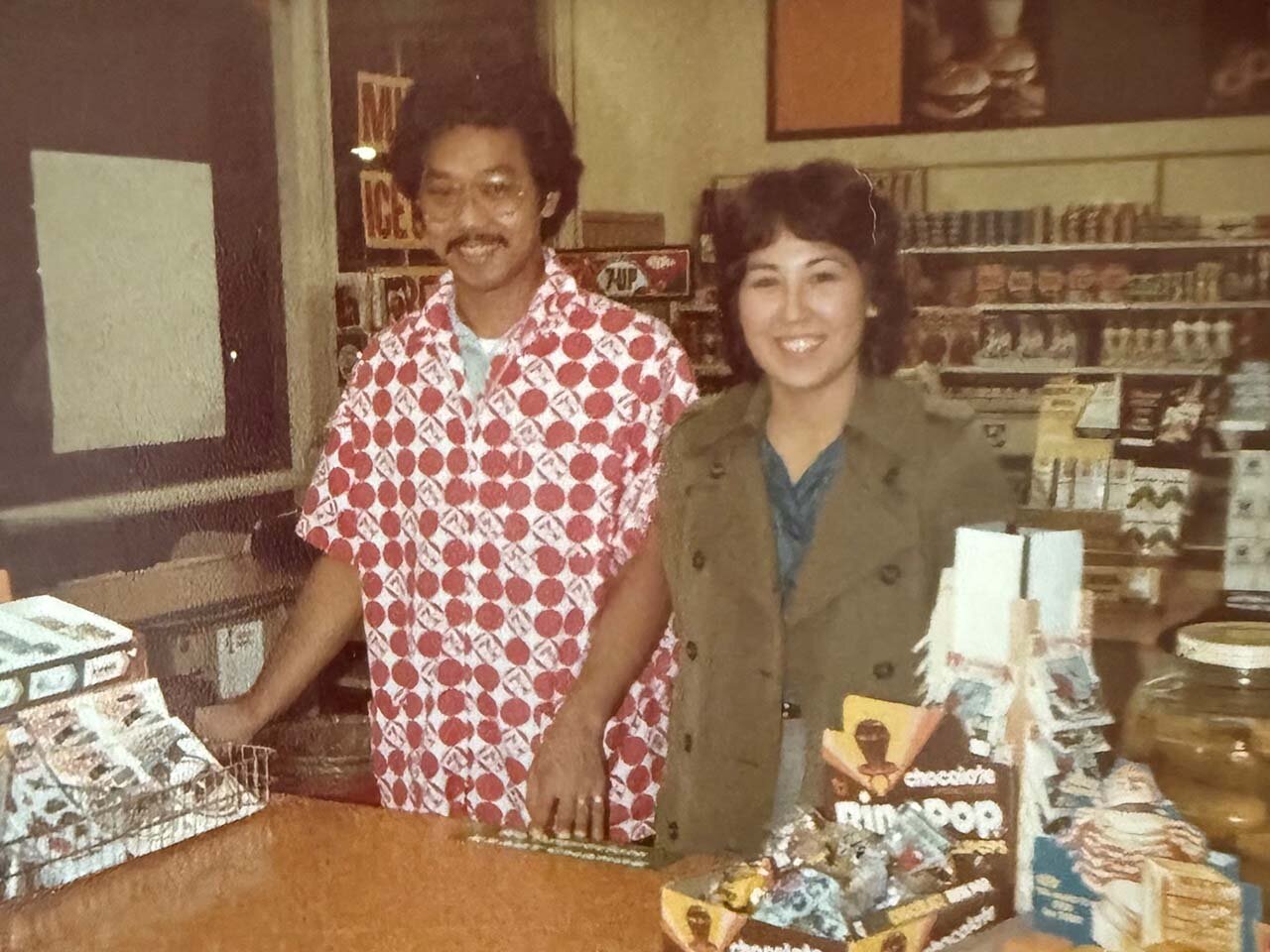
Dacus' sister and her husband stand at their family's 7-Eleven store in the late 1970s. Dacus does not appear in any photos from the store because he always worked at night.
His journey with convenience stores began during his high school years when his father opened a 7-Eleven franchise. "I helped on the overnight shift at my father's franchised 7-Eleven store in the U.S. on weekend. I was supposed to switch shifts with my sister at 8 a.m., but she often came in late because she knew I would not leave our family's store." he recalls. "This experience in the family business shaped my sense of the importance of customer service."
He also developed his salesmanship at a younger age by selling houseplants at flea markets. "I would buy high-quality plants from a local farmer for $2 and sell them for $5 or more. They sold very well, allowing me to make a profit of $100 to $200 each day," he remembers. "I guess I am a natural merchant. I also really liked the money. That was a lot for a teenager in the mid-70's."
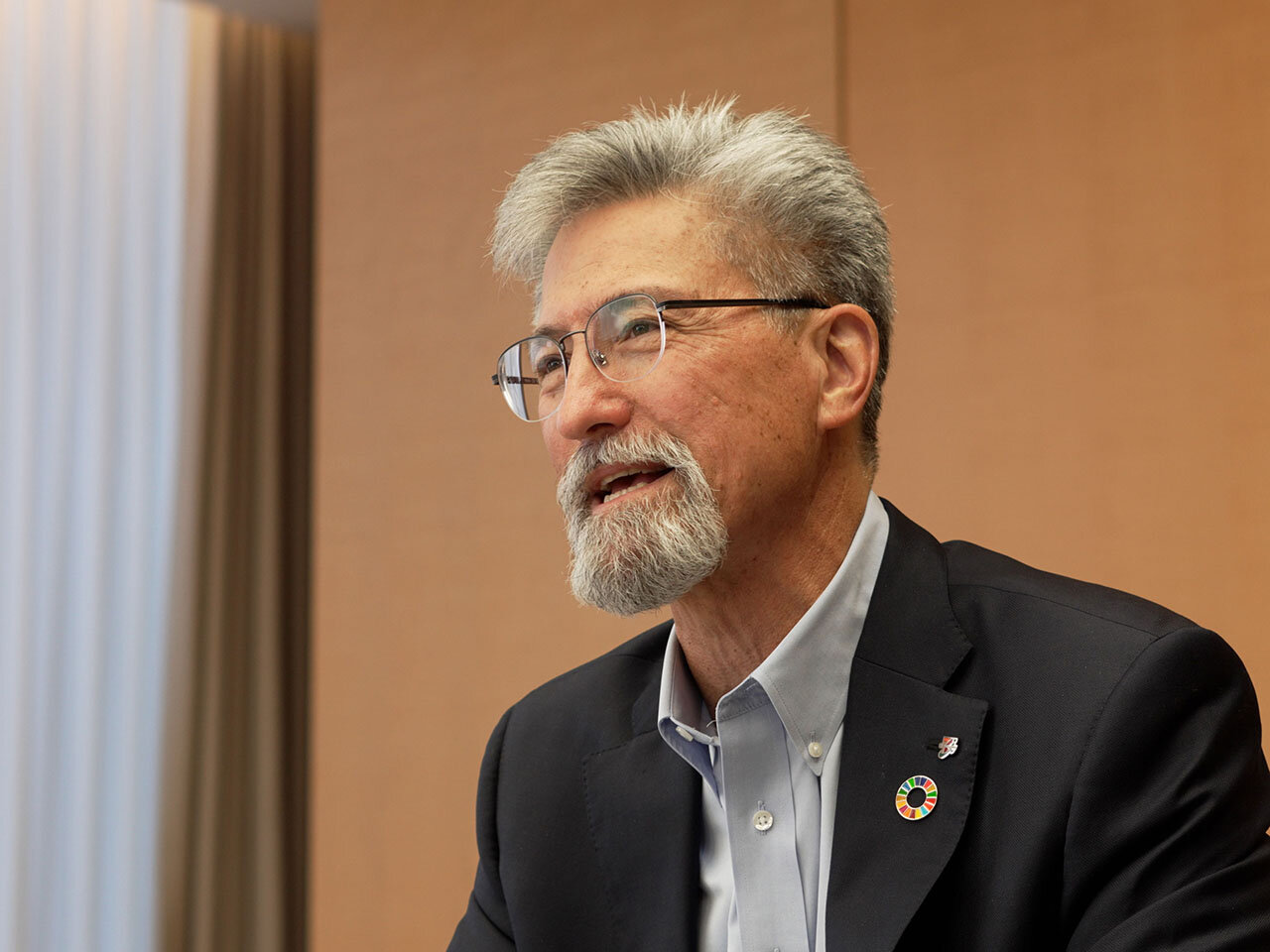
Dacus smiles as he recalls paying his college tuition with money he earned himself.
The Beginning of a Career Built Through Hard Work
When he graduated from college in the 1980s, the U.S. was amid a recession. At the same time, many Japanese companies were moving into Los Angeles where he was living, creating a demand for accountants who spoke Japanese. Unsatisfied with his career, Dacus decided to pursue a career as a certified public accountant (CPA). However, during a job interview with a time-honored accounting firm, he was advised to gain more accounting knowledge before returning to apply again.
Determined to succeed, Dacus enrolled in evening courses at the University of California, Los Angeles (UCLA), while working fulltime during the week. "I dedicated three hours each night and eight hours every Saturday and Sunday to my studies." After a year of hard work, he qualified to take the CPA exam and was subsequently hired and became a CPA.
Five years later, at the age of 29, Dacus was transferred to Japan as a member of the Chuo Audit Corporation. He recalls how vibrant and bright Tokyo seemed during his stay. Although Japan's bubble economy had already burst, the city had not yet felt its effects. "I really enjoyed my time there and had no desire to return to Los Angeles after my three-year term. And I was ready to take on new challenges."
Meeting a Leader Who Influenced My Values
Dacus' career began to take off shortly afterward when he received job offers from both an investment bank and the global food company, Mars, Incorporated. He finally chose Mars.
"The investment bank offered me a much higher salary, but Mars had an incredible corporate culture. When I met the management team, I felt strongly that I could grow significantly working there with these people. I wanted to value what kind of person and leader I could become, rather than just acquiring financial success, and I thought I would have a lot more fun."
When Dacus joined Mars, he had set a goal to work diligently and become the Chief Financial Officer (CFO) of the Japanese subsidiary within ten years. However, a few years into his tenure, the president of Mars made a comment that changed his perspective.
"What are you talking about? We didn't hire you to be a CFO. We hired you in order to develop you into the CEO of one of our businesses. You need to set your sights higher."
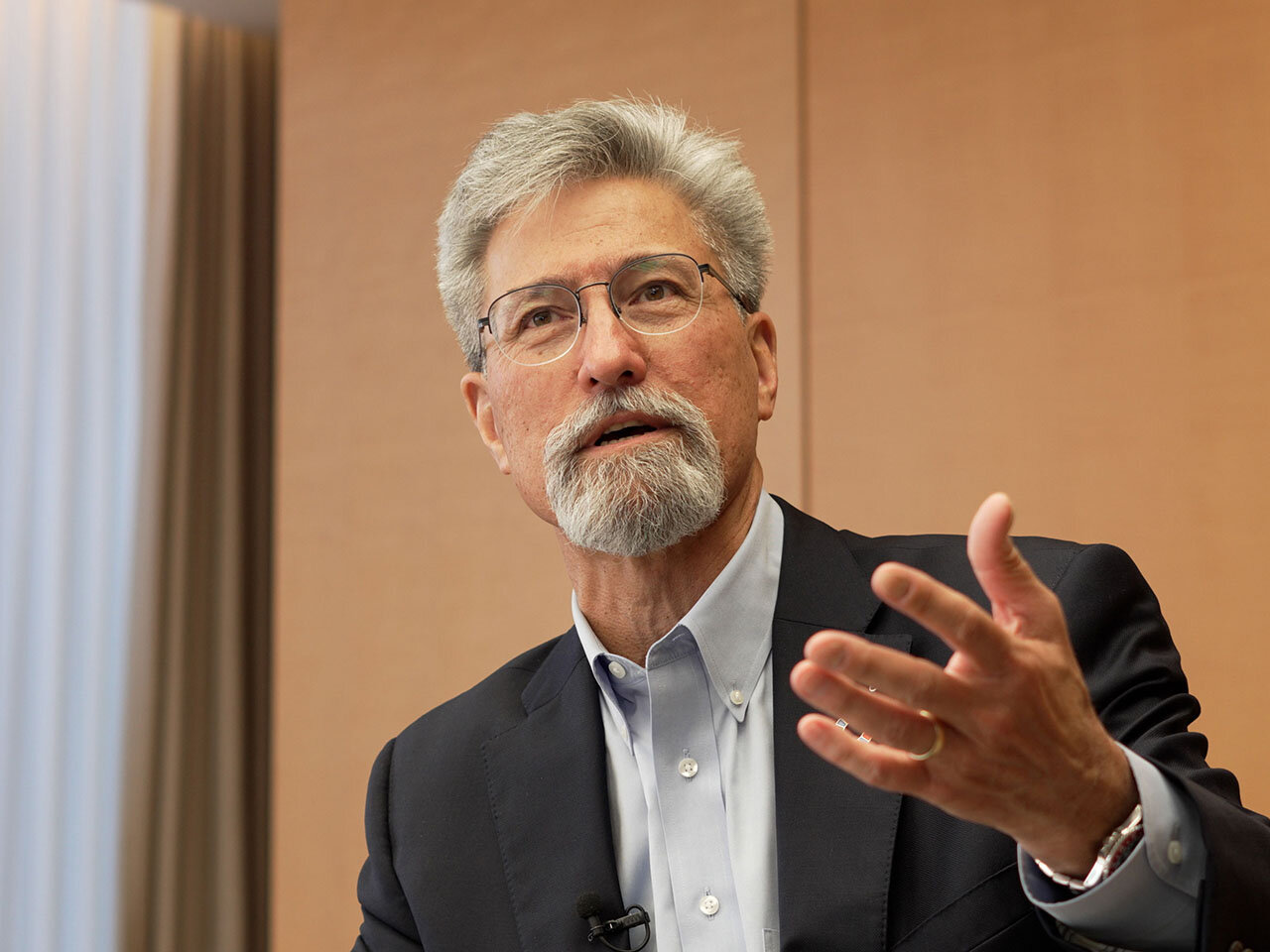
Dacus shares his desire to be a leader empowers others and inspires insight and awareness.
He had never thought he had that kind of potential, but once he realized that other people, who he respected, thought that he did, it changed the way he saw himself. He began to visualize himself in a CEO role, and his behavior and work style transformed. Two and a half years later, he became the Asia Pacific regional CFO of Mars, and three years after that, he assumed the role of president of the Japan branch of Mars, Master Foods Ltd. (now known as Mars Japan Ltd.).
"Without the words from my boss, my career would have taken a completely different direction. Many people do not realize how much potential they have. This experience has taught me the importance of leaders helping others discover their potential."
Journeys with Uniqlo, Wal-Mart, and Sushiro
Since then, Dacus has established a strong track record in the distribution industry in Japan, the U.S., and Europe, serving as the Senior Vice President of Fast Retailing Co., Ltd. who owns the global fashion brand Uniqlo, and CEO of Seiyu Co., Ltd., CEO of Wal-Mart Japan Holdings, and the Chairman of Sushiro Global Holdings.
Before taking on these roles, Dacus consistently asked himself one simple question: "Can I grow as a person and a leader here?" He was fortunate to meet influential individuals who helped him answer that question.
"Mr. Tadashi Yanai, the founder of Fast Retailing and the face of Uniqlo, is an incredibly charismatic leader. When I listened to his vision for international business operation, I was convinced I would gain valuable insigts by working with him, even though I wasn't sure if it would be fun or not (laughs)."
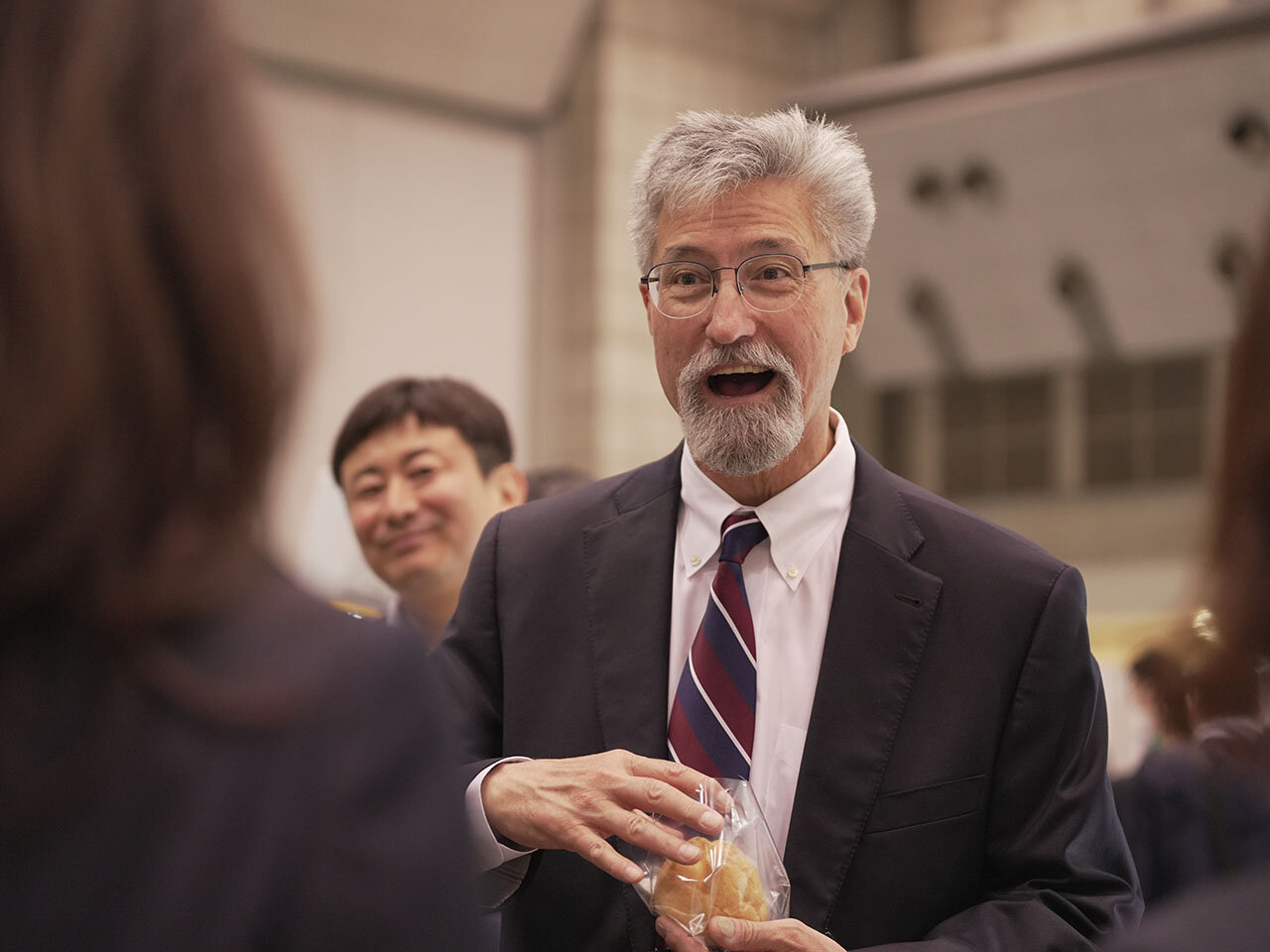
At the SEVEN-ELEVEN Innovation Expo 2025, Dacus samples new products alongside Seven-Eleven Japan employees.
For Wal-Mart, he says that he was hesitant to join them at first. "However, when I met the management team, I felt strongly that I would grow as a person and a leader by being part of the team. It was one of the encounters that left such a strong impression." Another motivation for joining Wal-Mart was his family; he wanted his children to experience life in the United States, so they relocated there together.
When Wal-Mart acquired Seiyu, one of Japan's major supermarket chains, the company's president, struggling to navigate the local Japanese business environment, invited him to join the team. He agreed to return to Tokyo to take on the role of CEO at Seiyu. In this position, he focused on strengthening the team and culture, successfully leading the efforts to rebuild Seiyu.
After returning to the U.S. and preparing for his retirement, he received a call from a friend who had acquired Sushiro, a popular sushi restaurant chain in Japan. Accepting the invitation, Dacus took on the role of chairman and played a key role in the company's re-listing.
Keep Striving to Grow
Although all these responsibilities come with significant pressure, Dacus smiles and says, "I have enjoyed every experience, as they have given me many valuable lessons."
He has applied these lessons to his journey with the Seven & i Group as well. When Dacus served as the Lead Independent Outside Director, he made every effort to find time to visit stores and listen to the voices of employees working on the front lines with customers. He understands that the real strength of the company comes from the daily contributions of each team member and believes it is essential to help them reach their full potential.
Now, as the CEO of the Group, he plans to leverage his expertise to promote the Group's growth in the global market, while also striving to grow as a person and as a leader.
Reviving the Founder's Mentality Through Servant Leadership
As the new leader of the Group, Dacus has set a clear goal: to foster a culture of servant leadership, a value-driven approach that puts the needs of employees, customers, and partners first. In his view, everyone is a leader in their own role.
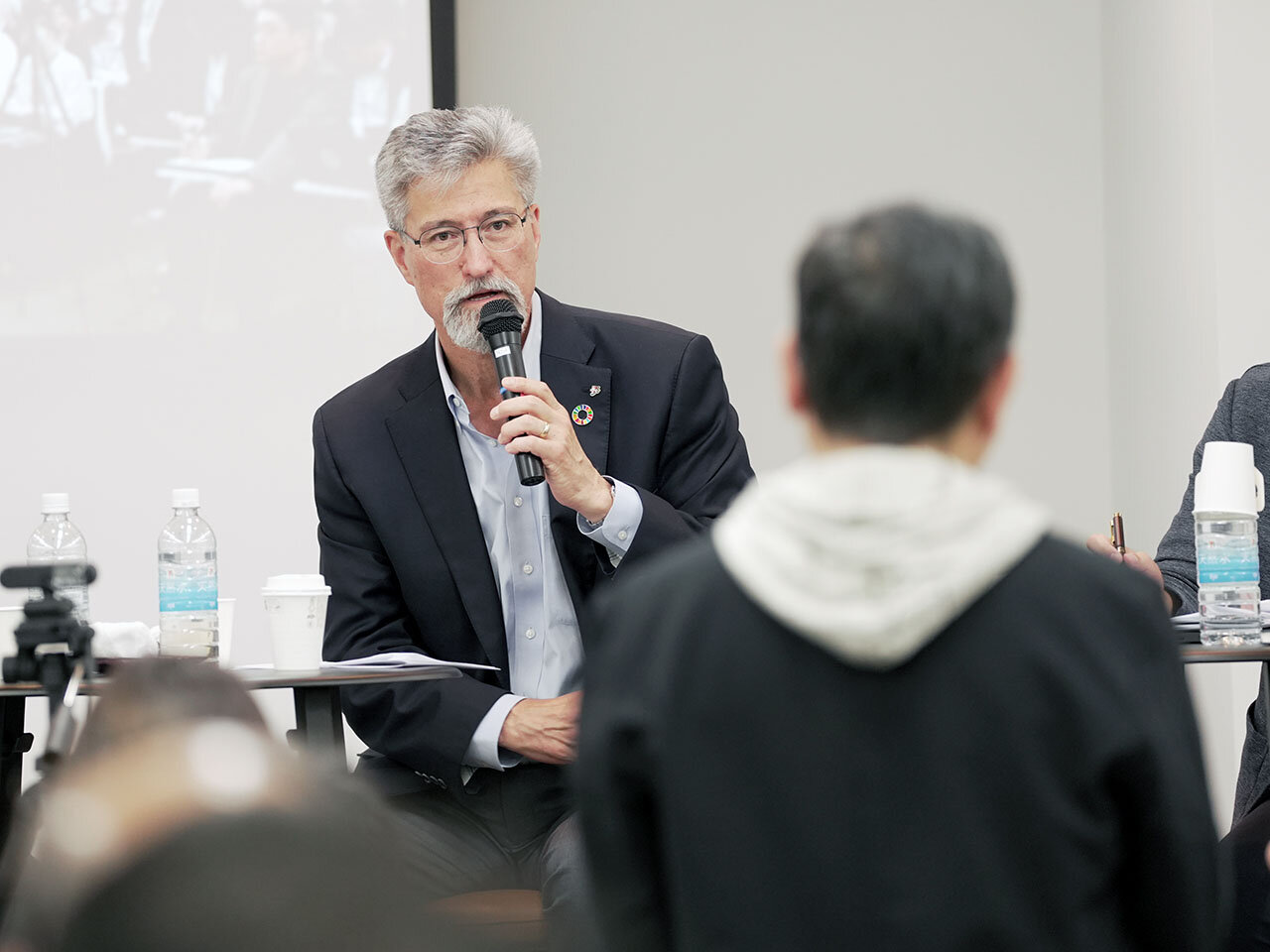
Shortly after becoming CEO of Seven & i Holdings, Dacus engages with employees in a town hall meeting.
"I am truly honored and humbled to have been selected to lead Seven & i Holdings. In the long history of our company, I am only the third CEO. That speaks to our stability and success."
At the same time, Dacus pointed out the hidden risks of long-standing successcomplacency and bureaucracy which can undermine performance over time.
"Currently, our performance versus our competitors in Japan, North America, and International is weak. While we have the highest market share, we do not demonstrate the best performance. I believe we may have lost part of the entrepreneurial ‘founder's mentality' that led to our success in the first place."
To regain the mindset, he calls for a renewed focus on the customers.
"The leaders of our global CVS businesses have already begun this work but all of us have a part. We can all start by considering what we do everyday and ask ourselves whether it truly adds value to our customers and our business. Why are we doing this? Is there a better way? Is it truly necessary?"
Beyond reflection, Dacus encourages action, accountability, and mutual support.
"We must then act and hold ourselves and each other accountable for change. We must support and empower each other to act. Listening and learning with humility while acting with assertion and speed is the hallmark of a servant leader".
He believes that if every person adopts a founder's mindset and leads with care, the potential for positive impact is enormous.
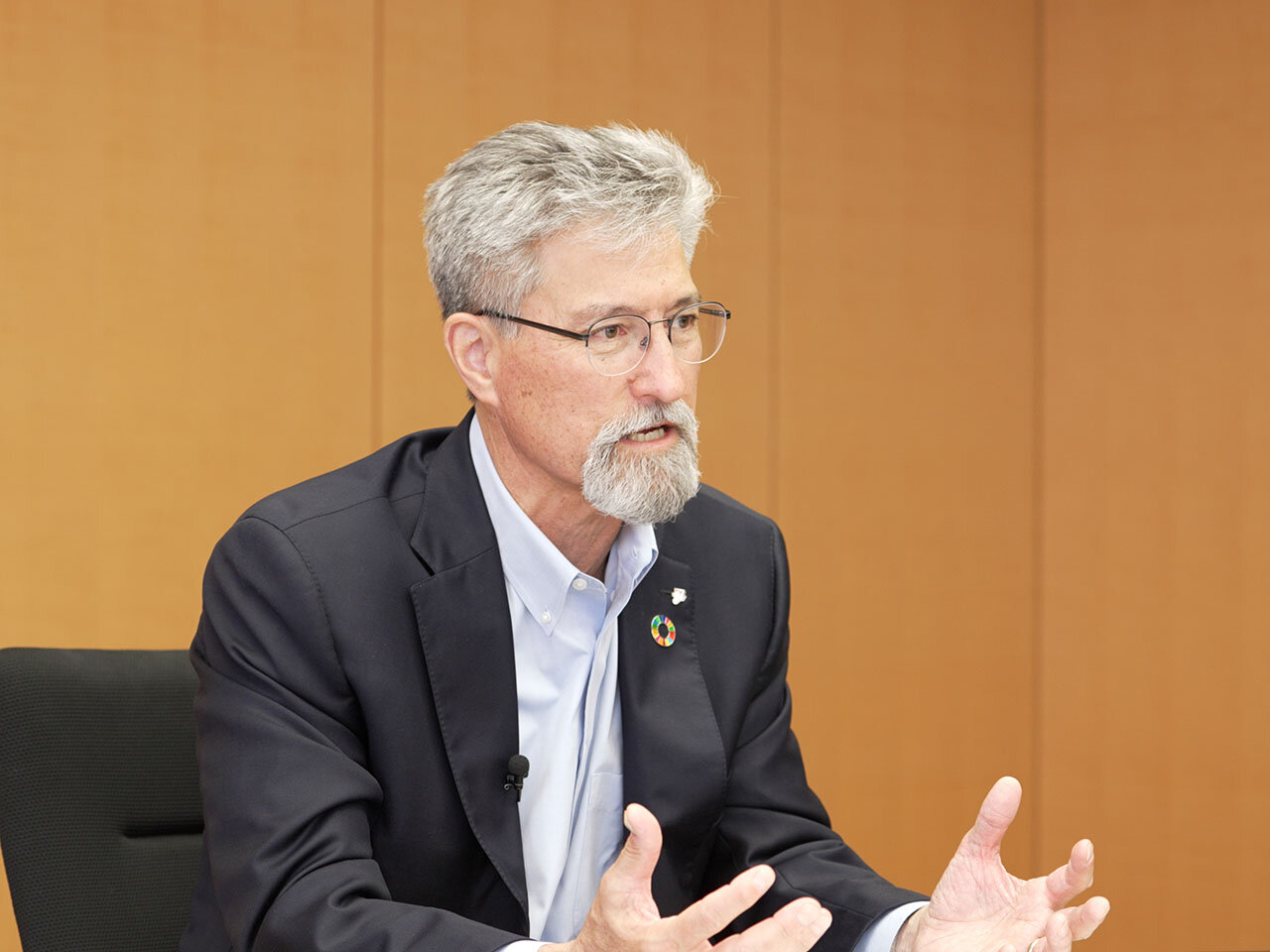
"Be a servant leader"—a message Dacus passionately shares.
Lastly, Dacus extends an open invitation for dialogue.
"I encourage all of you to share your honest thoughts with me and the other senior executives. I am new in this role, and there is much I do not know. Those of you who have been in the business for a long time know the reality. Share your insights and teach me. I want to know. I will listen. Feel free to speak to me when you see me or just send me an email. I look forward to hearing from you."
Dacus' Working Style in Color: EMERALD GREEN
"If I were to compare my working style to a color, I would choose emerald green. I try to balance humility and proactiveness. This attitude is best represented by the strong and vibrant imagery of emerald green."
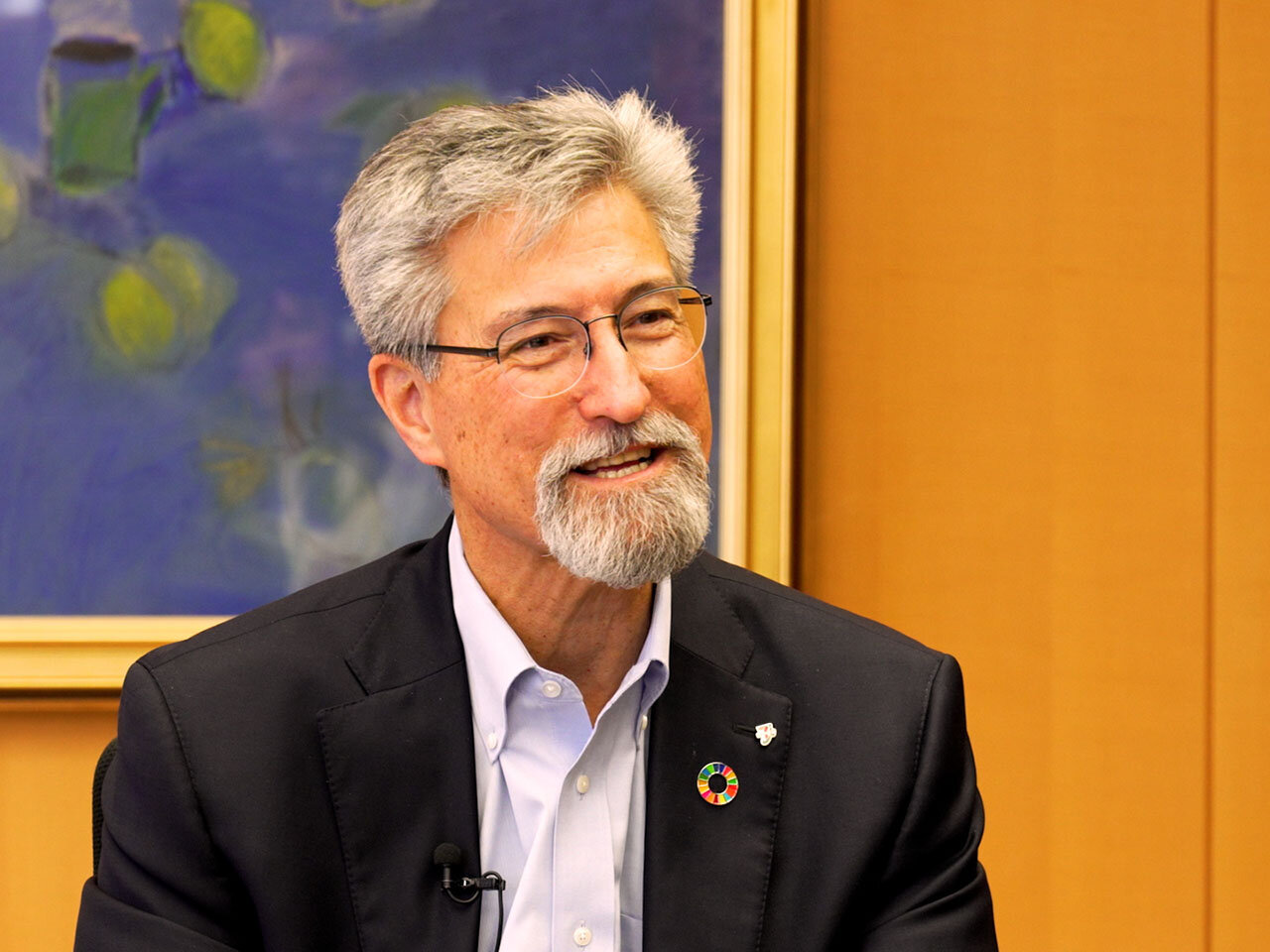
With a spirit of strength and flexibility, reminiscent of martial arts, he concludes the interview by emphasizing the importance of teamwork.
"Let's work together with humility, compassion, and ambition to grow as a team."
